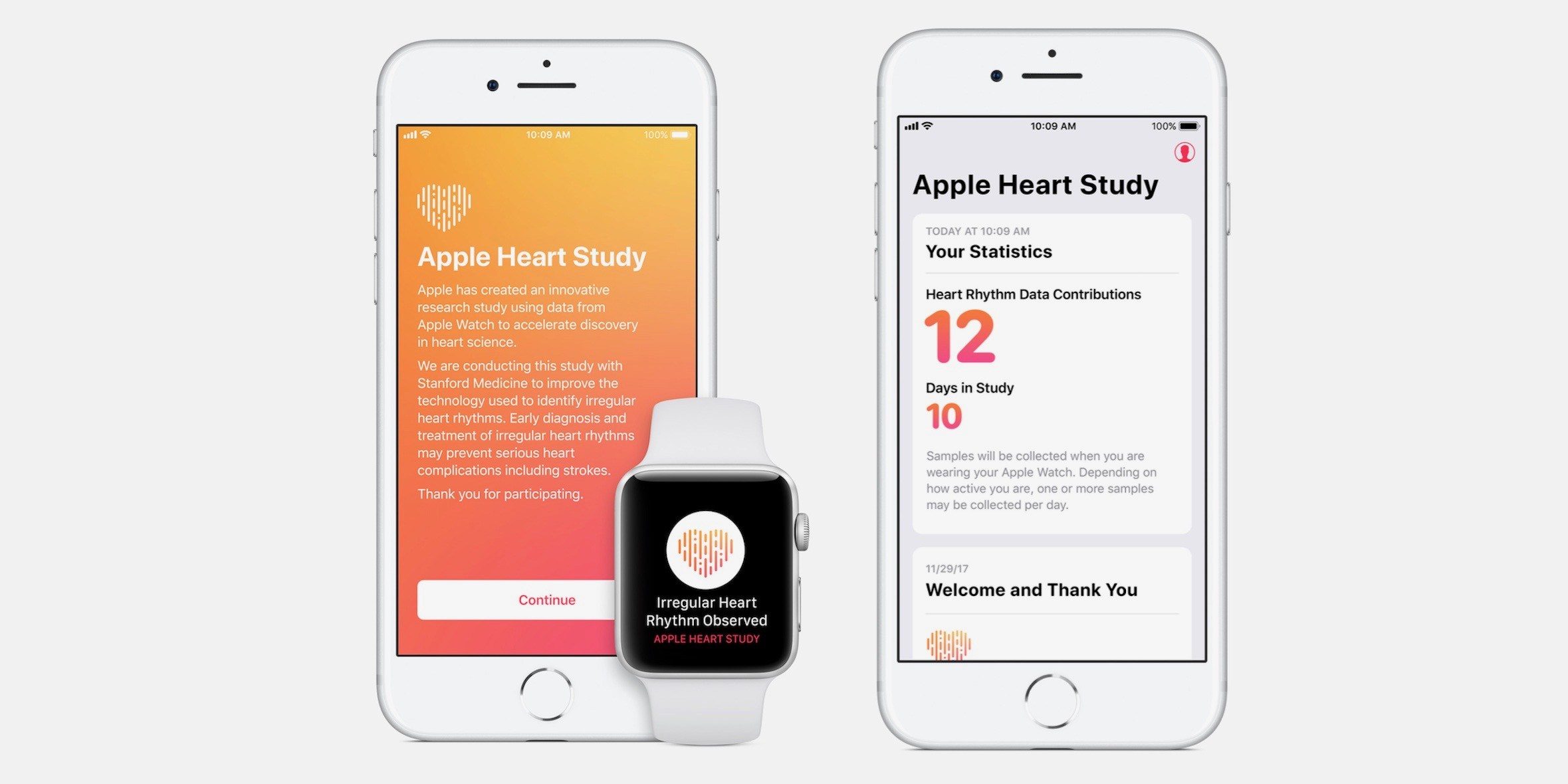 2257
2257
 2019-03-18
2019-03-18
Apple and Stanford Medicine today announced the results of the Apple Heart Study. The study enrolled over 400,000 participants, making it the “largest study ever of its kind,” according to Apple. The findings were presented in New Orleans this morning.

The goal of the study, Apple says, was to evaluate Apple Watch’s irregular rhythm notification. If an irregular rhythm was detected, participants received a telehealth consultation with a doctor and an electrocardiogram patch for additional supervision.
As for the results, Stanford Medicine researchers say the Apple Heart Study showed 0.5 percent of the 419,093 participants received an irregular heartbeat notification:
Stanford Medicine researchers presented their findings today at the American College of Cardiology’s 68th Annual Scientific Session and Expo. Study results showed 0.5 percent of the over 400,000 participants received an irregular heart rhythm notification, illustrating the feature’s ability to give a user important health information without creating an unnecessary burden to their doctor’s schedule.
Building on this, Apple says that “many participants” sought additional medical advice following the irregular heartbeat notification. The information from their Apple Watch allowed them to “have more meaningful conversations” with their doctors, according to Apple.
Apple COO Jeff Williams touted the company’s partnership with Stanford in the announcement:
“We are proud to work with Stanford Medicine as they conduct this important research and look forward to learning more about the impact of Apple Watch alongside the medical community,” said Jeff Williams, Apple’s COO. “We hope consumers will continue to gain useful and actionable information about their heart health through Apple Watch.”
Further, Apple’s vice president of health Sumbul Desai said that physicians are always searching for ways to offer better health information to patients. Apple Watch does just that, she touted:
“As physicians, we are always trying to find ways to offer patients health information that is meaningful to them for individualized care,” said Sumbul Desai, MD, Apple’s vice president of Health. “Seeing medical research reflect what we’re hearing from consumers is positive and we’re excited to see Apple Watch helping even more consumers in the future while collaborating with the medical community to further research.”
Stanford Medicine researchers presented the full findings at the American College of Cardiology’s 68th Annual Scientific Session and Expo in New Orleans, LA today.
Source: 9to5mac